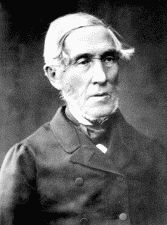Maailma ei pysy aloillaan; kun George leikkii sotaa yhdessa paikassa, muualla maailmassa velloo levottomuuden aallokko. Kansainvalinen diplomatia on monimutkaista ja vaatii jatkuvaa hienosaatoa, karsivallista neuvottelutaitoa ja kompromissien tekoa. Yhdysvaltain presidentin luonteeseen eivat kuulu tallaiset ominaisuudet: han on Texasista, jossa ammutaan ensin ja kysytaan sitten.
Muutaman vuoden maailmamme kestaa moista holtittomuutta, mutta nyt on aika maksaa laulujen lunnaat. Pohjois-Korea kay kuumana ja nayttaa muille keskisormea, Afganistan on joutumassa uudelleen kaaoksen valtaan, Somaliassa kuohuu, Iran uhmaa kansainvalista yhteisoa ja Irak ei ota oppiakseen demokratian alkeita. Venajakin nayttaa putovan demokratian karryilta...
Yhdysvallat on maailman ainoa supervalta, ja siksi sen on oltava aktiivisesti edistamassa rauhaa ympari maailman. Mutta ei nyrkilla tai risulla, vaan samettivasaralla ja porkkanalla. Silla mita isot edella sita pienet perassa.
Bush on opettanut, etta on parasta hankkia ydinaseita suojautuakseen amerikkalaisten hyokkaykselta. Tallaisen johtopaatoksen voisi vetaa Irakin, Iranin ja Pohjois-Korean kohdalla...
Analysis Bush confronts a world of troubles
By Michael Abramowitz and Robin WrightThe Washington Post
WASHINGTON — From deteriorating security in Afghanistan and Somalia to mayhem in the Middle East, confrontation with Iran and eroding relations with Russia, the White House suddenly sees crisis in every direction.
North Korea's long-range missile test Wednesday, although unsuccessful, was another reminder of the bleak foreign-policy landscape that faces President Bush even outside of Iraq. Few foreign-policy experts foresee the reclusive Stalinist state giving up the nuclear weapons it appears to have acquired, making it another in a long list of world problems that threatens to cloud the closing years of the Bush administration, according to foreign-policy experts in both parties.
"I am hard-pressed to think of any other moment in modern times where there have been so many challenges facing this country simultaneously," said Richard Haass, a former senior Bush administration official who heads the Council on Foreign Relations.
"The danger is that Mr. Bush will hand over a White House to a successor [who] will face a far messier world, with far fewer resources left to cope with it."White House officials reject such pessimism, and Wednesday leading figures in both parties saw some diplomatic opportunity for the United States in the missile failure. But the launches of it and six other shorter-range missiles underscored how the administration has lost the initiative it had after the Iraq invasion, leaving at risk the central Bush aspiration of democracy-building around the world.
The launches also showed how the huge commitment of resources and time on Iraq — and the falloff in international support for the United States — has limited the administration's flexibility in handling new world crises.
"This is a
distracted government that has to take care of too many things at the same time and has been consumed by the war on Iraq," said Moises Namm, editor of Foreign Policy magazine.
National-security adviser Stephen Hadley said Wednesday such criticism is misplaced, adding that victory in Iraq is crucial to success in fighting terrorists and in creating a new democracy that could serve as a beacon to other Middle Eastern countries.
Hadley agreed there are "a lot of issues in motion right now" on the international front. "In some sense, it was destined to be, because we have a president that wants to take on the big issues and see if he could solve them on his watch."
Even in the context of a post-Sept. 11 world, the array of tough, seemingly intractable foreign problems is spreading.
Renewed violence has expanded to major cities throughout
Afghanistan, as Afghan rebels adopt tactics of Iraqi insurgents and as President Hamid Karzai's popularity has plummeted.
Iran is balking at demands to come clean or compromise on its nuclear program, despite new U.S. and European incentives.
Palestinians launched longer-range missiles into Israel, while Israel has authorized its army to invade part of northern Gaza.
Oil prices riseMeanwhile, an Islamist militia in
Somalia seized control of the capital, Mogadishu.
Mexico's future is uncertain after a close and disputed presidential election. And Wednesday, the price of light crude hit a new high of $75.19 a barrel.
Concern about such developments is cutting across the normal fault lines in U.S. politics, with critiques being expressed by conservative realists such as Haass and liberal internationalists such as former Secretary of State Madeleine Albright.
Albright said Wednesday that the
United States faces the "perfect storm" in foreign policy. "The U.S. is not as unilateral as it is uni-dimensional," she said. "We have not been paying attention to a lot of these issues. ... Afghanistan is out of control because not enough attention was paid to it."
Even neoconservative hawks who have been generally supportive of the administration on Iraq and other issues said they are worried about the direction of U.S. foreign policy and hope for a muscular response from the Bush administration toward the latest North Korean actions.
"North Korea is firing missiles. Iran is going nuclear. Somalia is controlled by radical Islamists. Iraq isn't getting better, and Afghanistan is getting worse," said William Kristol, editor of the Weekly Standard and a leading conservative commentator. "I give the president a lot of credit for hanging tough on Iraq. But I am worried that it has made [the White House] too passive in confronting the other threats."
Working with alliesSenior administration officials said the United States is in a much stronger diplomatic position than it has been in the past in dealing with adversaries such as North Korea and Iran. On both fronts, the administration has engaged in much more aggressive multilateral diplomacy than it did in Bush's first term, and that effort could bear fruit, they said.
Hadley predicted the results of aggressive diplomacy would be seen in the next few days with a strong condemnation of North Korea at the United Nations.
"We saw this coming. We worked the diplomacy," he said. "North Korea went ahead, and in so doing didn't defy [only] us but defied the entire international community."
Some outside experts agreed Wednesday's seven missile launches could help the administration make the case to China to work harder to rein in North Korea.
"This has to have gotten China's attention," said Rep. Jane Harman of California, the senior Democrat on the House intelligence committee. "What some may see as a series of setbacks, I see as a series of opportunities," she said.
Democrats and Republicans insisted the United States can deal with multiple crises, but some questioned how effectively.
"Every situation makes it more difficult to deal with another," said Zbigniew Brzezinski, national-security adviser in the Carter administration.
"It's like a juggler. You have to keep all the balls going. Any one of them that is out of trajectory threatens all the others."
Copyright © 2006 The Seattle Times Company



 "Pink Princess, a 1-year-old toy poodle, enjoys a walk around Oakland with owner Unique Hildreth. Hildreth, who says she has worn pink everyday for the past five years, dyes the poodle about once a month to maintain her pinkness." (AP Photo/Noah Berger) (July 12, 2006)
"Pink Princess, a 1-year-old toy poodle, enjoys a walk around Oakland with owner Unique Hildreth. Hildreth, who says she has worn pink everyday for the past five years, dyes the poodle about once a month to maintain her pinkness." (AP Photo/Noah Berger) (July 12, 2006)
